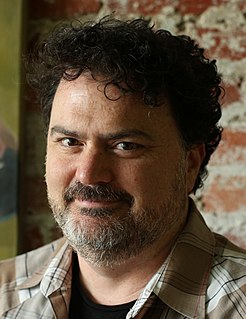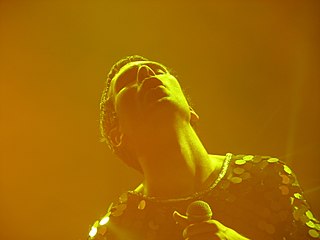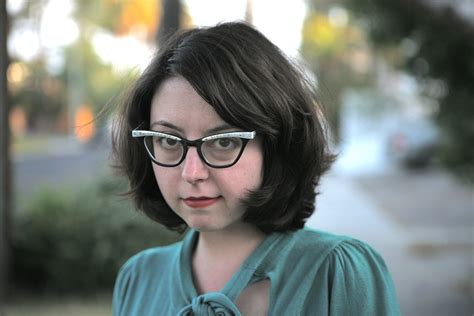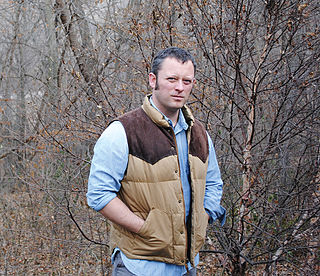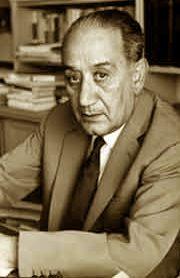A Quote by Markus Zusak
I like that every page in every book can have a gem on it. It's probably what I love most about writing--that words can be used in a way that's like a child playing in a sandpit, rearranging things, swapping them around. They're the best moments in a day of writing -- when an image appears that you didn't know would be there when you started work in the morning.
Related Quotes
The secret to writing is writing. Lots of people I know talk about writing. They will tell me about the book they are going to write, or are thinking about writing, or may write some day in the future. And I know they will never do it. If someone is serious about writing, then they will sit down every day and put some words down on paper.
Write all the time. I believe in writing every day, at least a thousand words a day. We have a strange idea about writing: that it can be done, and done well, without a great deal of effort. Dancers practice every day, musicians practice every day, even when they are at the peak of their careers – especially then. Somehow, we don’t take writing as seriously. But writing – writing wonderfully – takes just as much dedication.
For me, a lot of Discipline was very personal writing, like writing through and working out being inside this gendered body and also the compulsions of the body, the muting of the mind as driven by the body. My father had died some years ago so he haunts the book too, just floats through it ghost-like. But, the writing of every book is different for me. They are so like living creatures, these books, so I don't know what's carried over into the writing of the next things - except maybe that I'm best when I make my writing practice a routine.
Mother, I am young. Mother, I am just eighteen. I am strong. I will work hard, Mother. But I do not want this child to grow up just to work hard. What must I do, mother, what must I do to make a different world for her? How do I start?" "The secret lies in the reading and the writing. You are able to read. Every day you must read one page from some good book to your child. Every day this must be until the child learns to read. Then she must read every day, I know this is the secret
Oh yeah - you have to write every day. Or every weekday. Because writing is a job. It's not eureka moments over and over. It's grueling work, panning for gold. You just keep at it and eventually you get a few grains. Or flakes. Or whatever gold looks like in rivers. Or maybe it's like fishing. Who cares? You just have to do it every day because you never know which day is going to be your productive day.
There's a difference between writing, the written word, and music. When you have the blank page it doesn't make a sound, which is like what happens to me every night when I'm playing. There is that crazy moment: the first mark you make on the page. But sound can inspire sound, in a way that words can't inspire words - at least for me. The nature of sound itself is still a huge mystery to me. I'm very happy about that.
I think all writing is about writing. All writing is a way of going out and exploring the world, of examining the way we live, and therefore any words you put down on the page about life will, at some level, also be words about words. It's still amazing, though, how many poems can be read as being analogous to the act of writing a poem. "Go to hell, go into detail, go for the throat" is certainly about writing, but it's also hopefully about a way of living.
There's a fantastic, thousand-page book by David Thomson about [David O. Selznick]. Again, it's not the best argument or the best advertisement for his story, because most people aren't going to read a thousand-page book. But I feel like the rise and fall and the work [Mayer] produced - not just the movies, but the memos, the volume of writing - he's just so passionate, and that's really exciting.
I think my leap into TV and movies and comics is in a way natural because I'm a visual storyteller. If you look at any one of my short stories or novels, they sort of unscroll cinematically. Every scene is concrete in my mind. I can walk around the room and pick things up. I can describe at length every feature on the character, though I might only supply a glimpse of this on the page. So if I'm writing color into that I'm also writing texture, I'm pushing the image more than anything else.
I used to always throw in random questions. I'd have to ask about artist's single and their writing process, which I know is every artist's most-hated question, like, "Well what was ,your process?" And it's. like, "Well, I wrote this album." And then at the end I would throw in, like, "So, Seinfeld or Simpsons?" and they'd be so thrown, because everything else could be autopilot. All my greatest moments were from the most sporadic questions.
I started writing when I was around 6. I say 'writing,' but it was really just making up stuff! I started writing and doing my own thing. I didn't really know what a demo was or anything like that, so I started getting interested in studio gear and started learning about one instrument at a time. My first instrument was an accordion.
I have a hard time writing. Most writers have a hard time writing. I have a harder time than most because I'm lazier than most. [...] The other problem I have is fear of writing. The act of writing puts you in confrontation with yourself, which is why I think writers assiduously avoid writing. [...] Not writing is more of a psychological problem than a writing problem. All the time I'm not writing I feel like a criminal. [...] It's horrible to feel felonious every second of the day. Especially when it goes on for years. It's much more relaxing actually to work.







